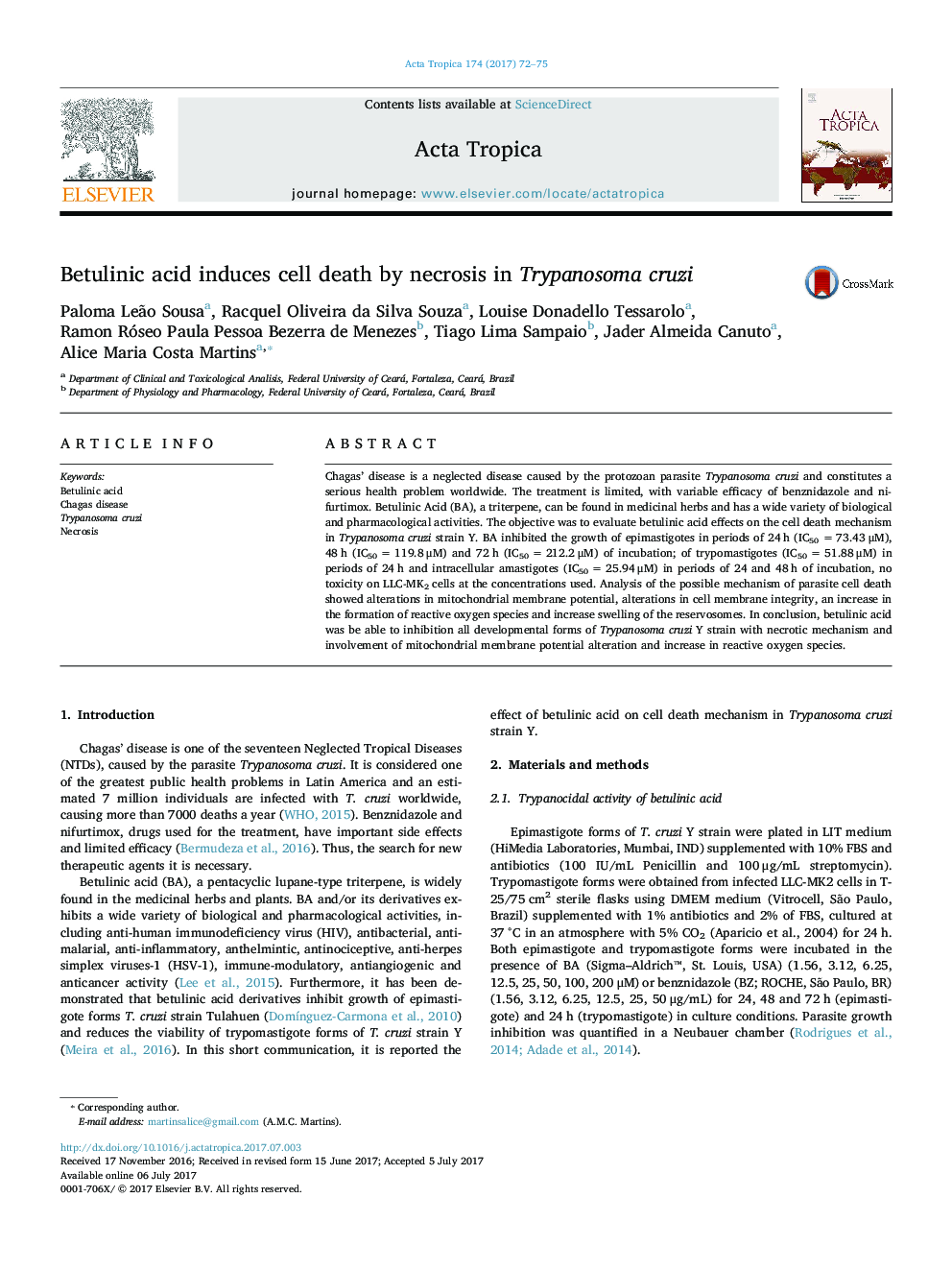| Article ID | Journal | Published Year | Pages | File Type |
|---|---|---|---|---|
| 5670776 | Acta Tropica | 2017 | 4 Pages |
â¢Betulinic acid (BA) causes death of T. cruzi.â¢BA induces death by necrosis in T. cruzi.â¢BA effect is related to mitochondrial damage and ROS.
Chagas' disease is a neglected disease caused by the protozoan parasite Trypanosoma cruzi and constitutes a serious health problem worldwide. The treatment is limited, with variable efficacy of benznidazole and nifurtimox. Betulinic Acid (BA), a triterpene, can be found in medicinal herbs and has a wide variety of biological and pharmacological activities. The objective was to evaluate betulinic acid effects on the cell death mechanism in Trypanosoma cruzi strain Y. BA inhibited the growth of epimastigotes in periods of 24 h (IC50 = 73.43 μM), 48 h (IC50 = 119.8 μM) and 72 h (IC50 = 212.2 μM) of incubation; of trypomastigotes (IC50 = 51.88 μM) in periods of 24 h and intracellular amastigotes (IC50 = 25.94 μM) in periods of 24 and 48 h of incubation, no toxicity on LLC-MK2 cells at the concentrations used. Analysis of the possible mechanism of parasite cell death showed alterations in mitochondrial membrane potential, alterations in cell membrane integrity, an increase in the formation of reactive oxygen species and increase swelling of the reservosomes. In conclusion, betulinic acid was be able to inhibition all developmental forms of Trypanosoma cruzi Y strain with necrotic mechanism and involvement of mitochondrial membrane potential alteration and increase in reactive oxygen species.
Graphical abstractDownload high-res image (88KB)Download full-size image
